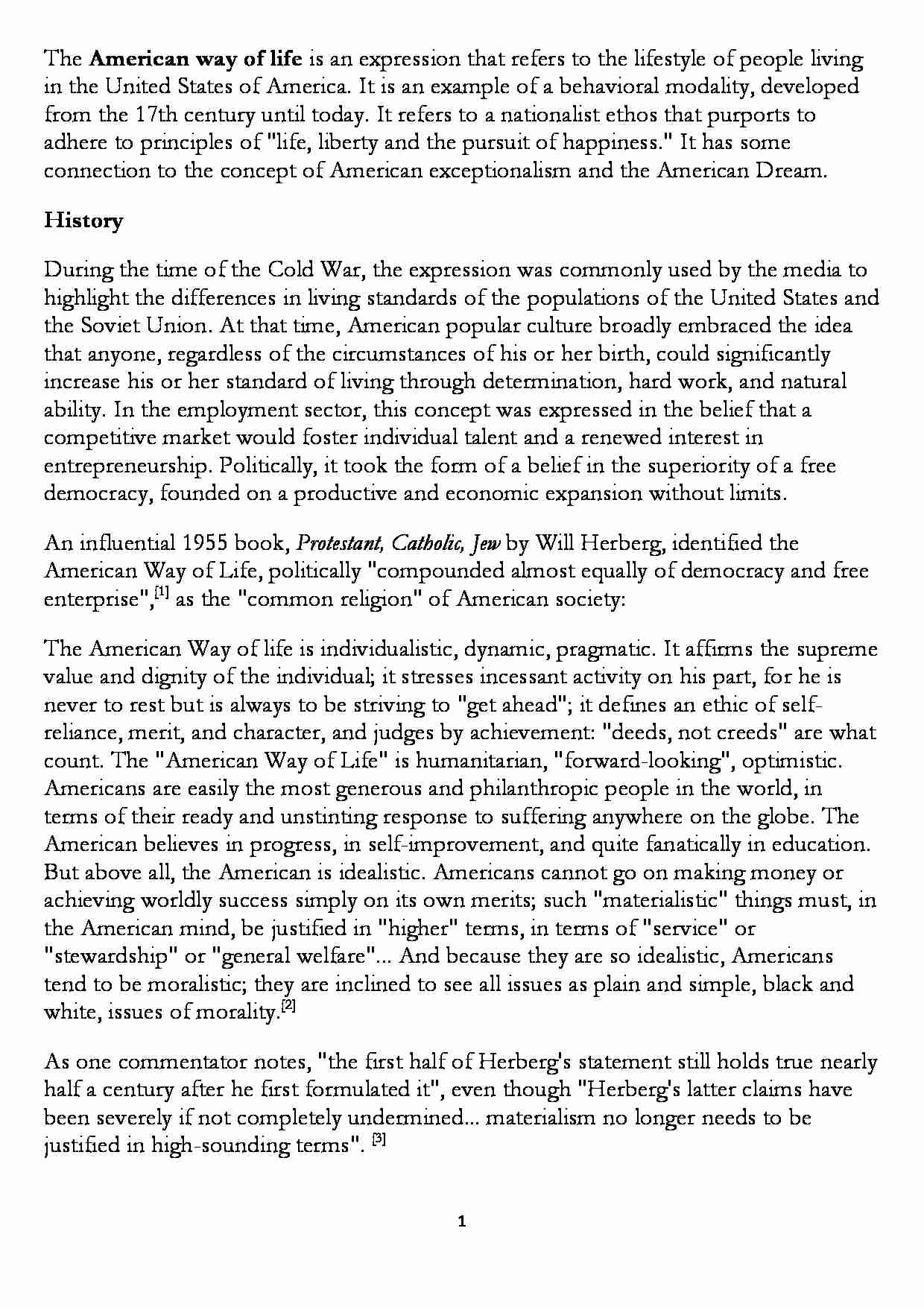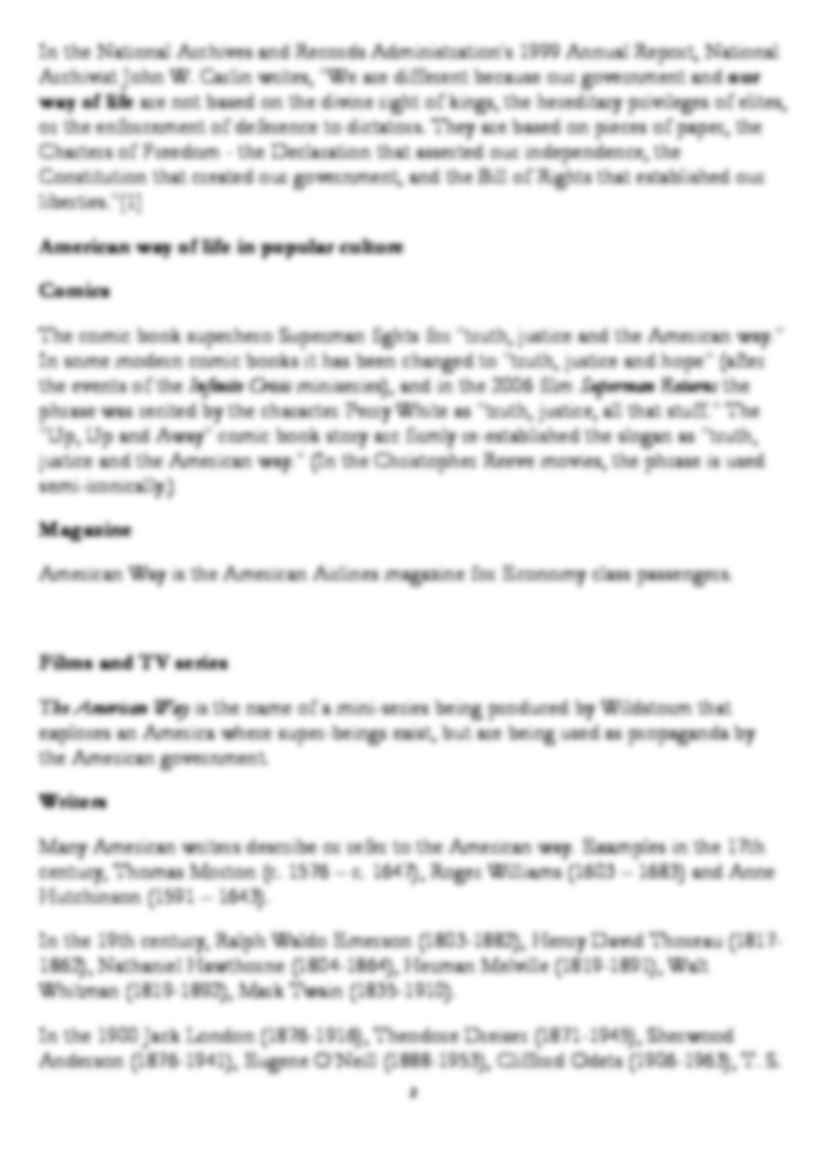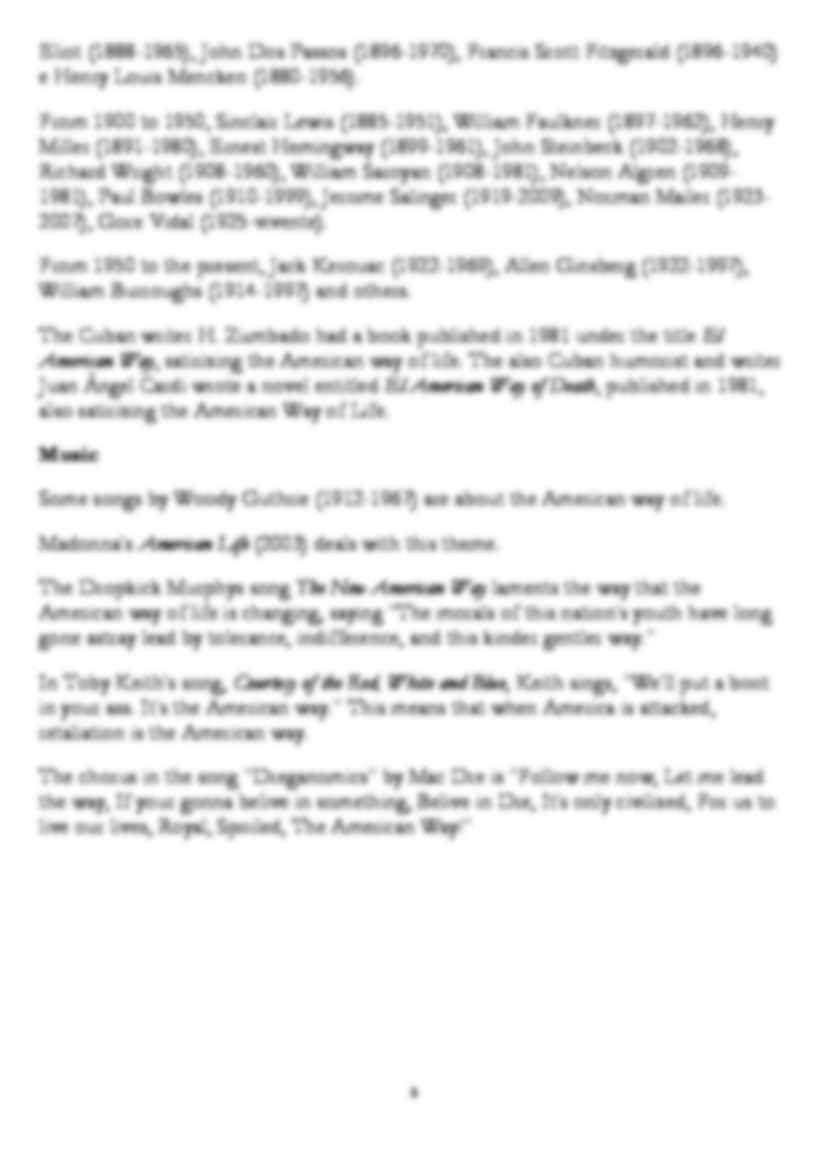The American way of life is an expression that refers to the lifestyle of people living in the United States of America. It is an example of a behavioral modality, developed from the 17th century until today. It refers to a nationalist ethos that purports to adhere to principles of "life, liberty and the pursuit of happiness." It has some connection to the concept of American exceptionalism and the American Dream.
History
During the time of the Cold War, the expression was commonly used by the media to highlight the differences in living standards of the populations of the United States and the Soviet Union. At that time, American popular culture broadly embraced the idea that anyone, regardless of the circumstances of his or her birth, could significantly increase his or her standard of living through determination, hard work, and natural ability. In the employment sector, this concept was expressed in the belief that a competitive market would foster individual talent and a renewed interest in entrepreneurship. Politically, it took the form of a belief in the superiority of a free democracy, founded on a productive and economic expansion without limits.
An influential 1955 book, Protestant, Catholic, Jew by Will Herberg, identified the American Way of Life, politically "compounded almost equally of democracy and free enterprise",[1] as the "common religion" of American society:
The American Way of life is individualistic, dynamic, pragmatic. It affirms the supreme value and dignity of the individual; it stresses incessant activity on his part, for he is never to rest but is always to be striving to "get ahead"; it defines an ethic of self-reliance, merit, and character, and judges by achievement: "deeds, not creeds" are what count. The "American Way of Life" is humanitarian, "forward-looking", optimistic. Americans are easily the most generous and philanthropic people in the world, in terms of their ready and unstinting response to suffering anywhere on the globe. The American believes in progress, in self-improvement, and quite fanatically in education. But above all, the American is idealistic. Americans cannot go on making money or achieving worldly success simply on its own merits; such "materialistic" things must, in the American mind, be justified in "higher" terms, in terms of "service" or "stewardship" or "general welfare"... And because they are so idealistic, Americans tend to be moralistic; they are inclined to see all issues as plain and simple, black and white, issues of morality.[2]
As one commentator notes, "the first half of Herberg's statement still holds true nearly half a century after he first formulated it", even though "Herberg's latter claims have been severely if not completely undermined... materialism no longer needs to be justified in high-sounding terms". [3]
In the National Archives and Records Administration's 1999 Annual Report, National Archivist John W. Carlin writes, "We are different because our government and
(…)
… series
The American Way is the name of a mini-series being produced by Wildstorm that explores an America where super-beings exist, but are being used as propaganda by the American government.
Writers
Many American writers describe or refer to the American way. Examples in the 17th century, Thomas Morton (c. 1576 - c. 1647), Roger Williams (1603 - 1683) and Anne Hutchinson (1591 - 1643).
In the 19th century, Ralph Waldo Emerson (1803-1882), Henry David Thoreau (1817-1862), Nathaniel Hawthorne (1804-1864), Herman Melville (1819-1891), Walt Whitman (1819-1892), Mark Twain (1835-1910).
In the 1900 Jack London (1876-1916), Theodore Dreiser (1871-1945), Sherwood Anderson (1876-1941), Eugene O'Neill (1888-1953), Clifford Odets (1906-1963), T. S. Eliot (1888-1965), John Dos Passos (1896-1970), Francis Scott Fitzgerald (1896-1940) e Henry Louis Mencken (1880-1956).
From 1900 to 1950, Sinclair Lewis (1885-1951), William Faulkner (1897-1962), Henry Miller (1891-1980), Ernest Hemingway (1899-1961), John Steinbeck (1902-1968), Richard Wright (1908-1960), William Saroyan (1908-1981), Nelson Algren (1909-1981), Paul Bowles (1910-1999), Jerome Salinger (1919-2009), Norman Mailer (1923-2007), Gore Vidal…
... zobacz całą notatkę






Komentarze użytkowników (0)